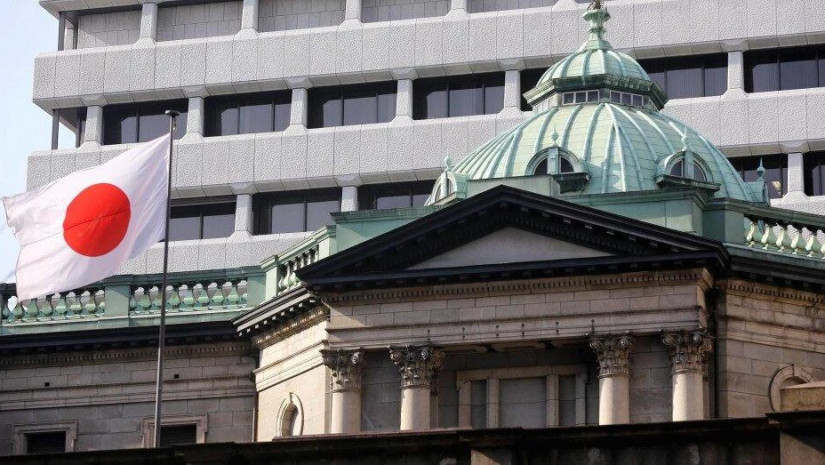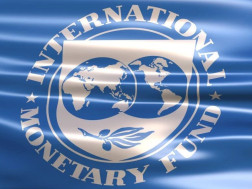Japan, the world's second-largest developed economy and third overall, is back on global investor’s radar.
Japanese equities are gaining more traction among global investors as a market where money is still available cheaply and asset valuations are much less expensive than in other major markets.
Investors are positioning for a regime change in global markets as the Bank of Japan edges closer to ditching the policies that depressed the yen for decades, thereby luring Japanese money back home.
The BOJ, by flooding its financial system with cheap cash and keeping interest rates below zero for years, turned its currency into the ideal funding vehicle and sent trillions of dollars of Japanese cash overseas in search of better returns.
In the 1970s and 80s, Japan was the forge of the world’s fantasies: shinkansen bullet trains, Karaoke and the Walkman, Manga and anime, Pac Mam and Pokémon, online image boards and emojis.
Especially since the rise of China, Japan as an investment market was out of favour due to Japan’s the so-called lost decades of recession and social dysfunction and even stock brokers referred to the country and its stock market as Asia -ex Japan.
Today, Portfolio managers are having to factor a stronger yen into global stock selection in way they have not for years, with some even anticipating mergers and acquisitions as the Japanese market revs up.
The trigger for the revaluation of the Japanese equity markets is higher rates and then a stronger yen.
Japan a market that has been undervalued for years and years and has been a value trap.
The yen has gained more than 11% from 30-year lows against the dollar hit last October.
Meanwhile the pandemic and war in Ukraine created the inflationary pressure the Bank of Japan has been looking for with 20 years of quantitative easing to prop up falling prices.
The Japanese equity market Japan exchange group is the 3rd largest equity market in the world and responds to global economic conditions more sensitively than other developed markets.
Many global investors, however, still associate investing in Japanese equities with "Japan lost decade "and the narrative of Japan as a country with no growth and a stock market that chronically underperformed the U.S. and even European equities.
Japanese companies are beating analysts' earnings expectations, adding to the appeal of local Japan stocks at a time when brokers are expecting a return of foreign investors and not only Mr. Buffett.
Japan is an aging country plagued by deflation and the government’s plan to end deflation was to have a weaker yen. The yen weakness policy seemed to have reaped some benefits for corporate Japan as even down and out Sony corporation is eking out some profits again and even re-launched the iconic Walkman.
Being Digital a non-fiction book about digital technologies and their possible future by technology author, Nicholas Negroponte, published in 1995 was the turning point for Japan and south Korea. The share price performance of Sony versus Samsung since the book publication was the most telling, since 1995 Samsung Korea has risen +8642% versus Sony Japan’s +424%.
Japan policy makers and manufactures maintained an analogue mind set while the Koreans fully embraced the digital world to become trend setters.
The decline of Japan’s electronics industry has been highly visible, since the brands that have faded- Sony, Sharp, Hitachi, Panasonic and many others – were once standard features in many middle-class homes around the world. Japan was chasing the world’ leading manufactures by making incremental improvements to existing techniques. This proofed a disadvantage when the world moved from analogue to digital, where the goal was to invent whole new ways of doings things. Mark Zuckerberg and Facebook mantra was “ move fast and break things”
Part of Japan’s problem has been referred to as the “Galapagos syndrome” named after Charles Darwin’s observation about how animals adept to specific environments, in Japan it had come to mean the development of technology too narrowly catered to the obsessively finicky home market.
Japan had phones capable of surfing the internet nearly a decade before the iPhone. Sony invented an e-reader several years before Amazon’s Kindle, but failed to commercialize its invention. Sharp was the first company to attach a camera to a mobile phone.
Apple founder and CEO extraordinaire Steve Jobs had a close relationship to Japan, and he monetized his insights from Japan for Apple shareholders.
Structural reform is important for Japan and its technocrats and politicians. No growth without reform, was the slogan. A more accurate slogan today might have been no growth without China.
Britain was overtaken by the US the world’s biggest manufacturer in 1900 just as Japan had been pushed behind China in 2010. Japan was in relative decline but has learned to live better.
Growth was based on production; the post growth period of Japan is about how to make better use of what Japan has. Just than being a larger economy, Japan economy needs to be fitter.
Japan as a democracy with a free press is a key ally of the United States and the so-called West.
President Xi Jing ping still thinks in terms of China’s century of humiliation and this includes the empire of Japan and its occupation of mainland China.
If population equals power, then Japan’s national vigour is waning. By 2050, according to some projections, there could be as many as 1 million Japanese over 100 years old.
Japan is looking for a more inclusive society partially focused on sustainability as a protection against the ”jungle of free market”. Japan remains in political transition, a new sustainable system has yet to be built, and this is the investment opportunity for global investors.
So far this year, Japanese stocks have modestly outperformed their US peers. The benchmark TOPIX Index has climbed more than 7%, while MSCI Inc’s gauge of global stocks excluding Japan is up about 6%.
Long and overweight Japan could become consensus, Family office clients and seasoned investors might recall the Wall Street adage: “just because its consensus does not make it wrong”.
Rainer Michael Preiss is Partner & Portfolio Strategist at Das Family Office in Singapore.
















